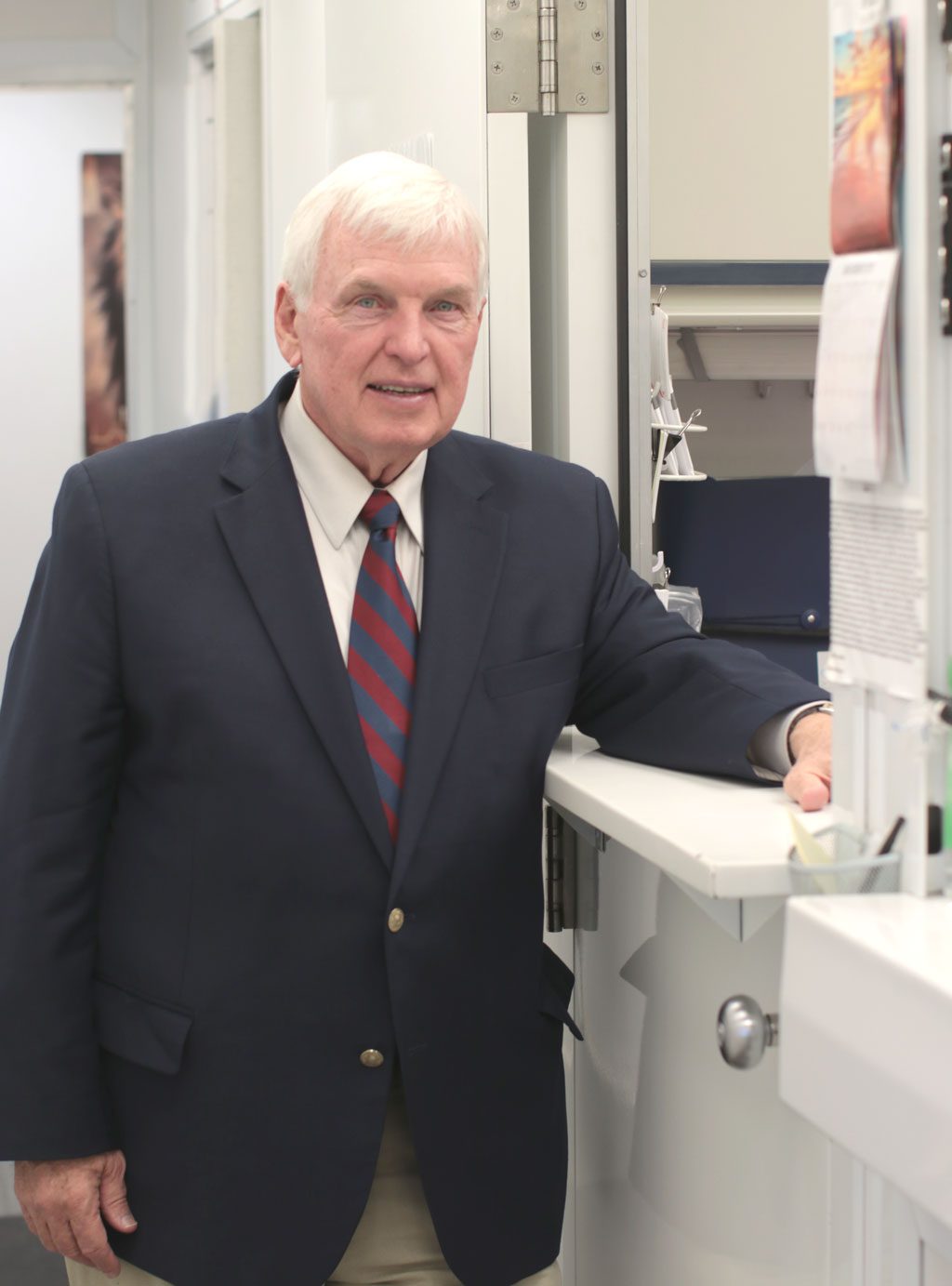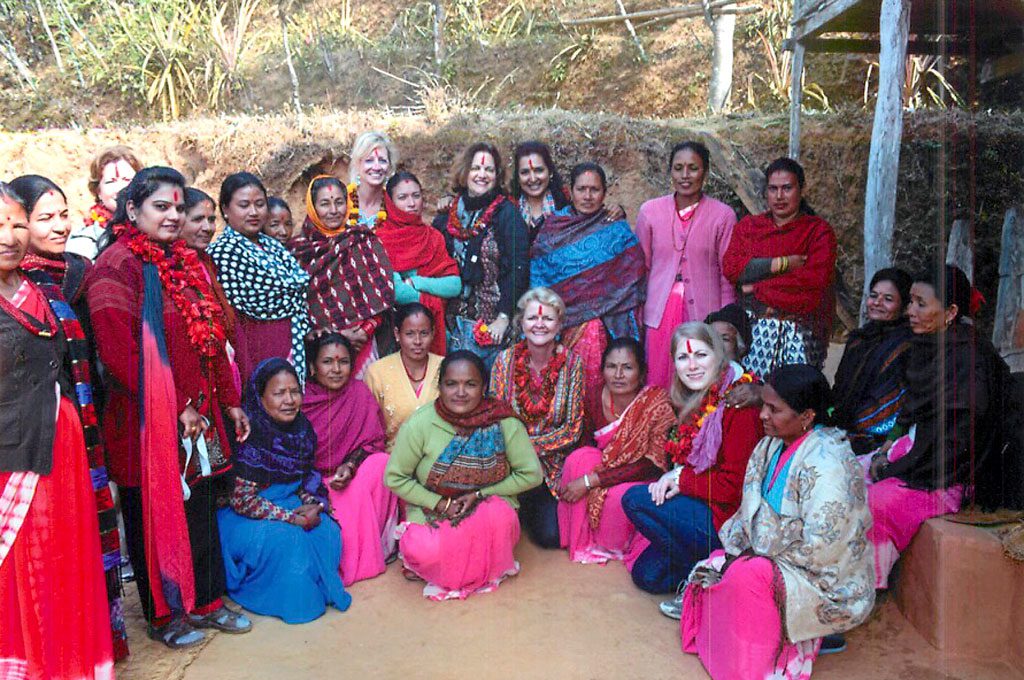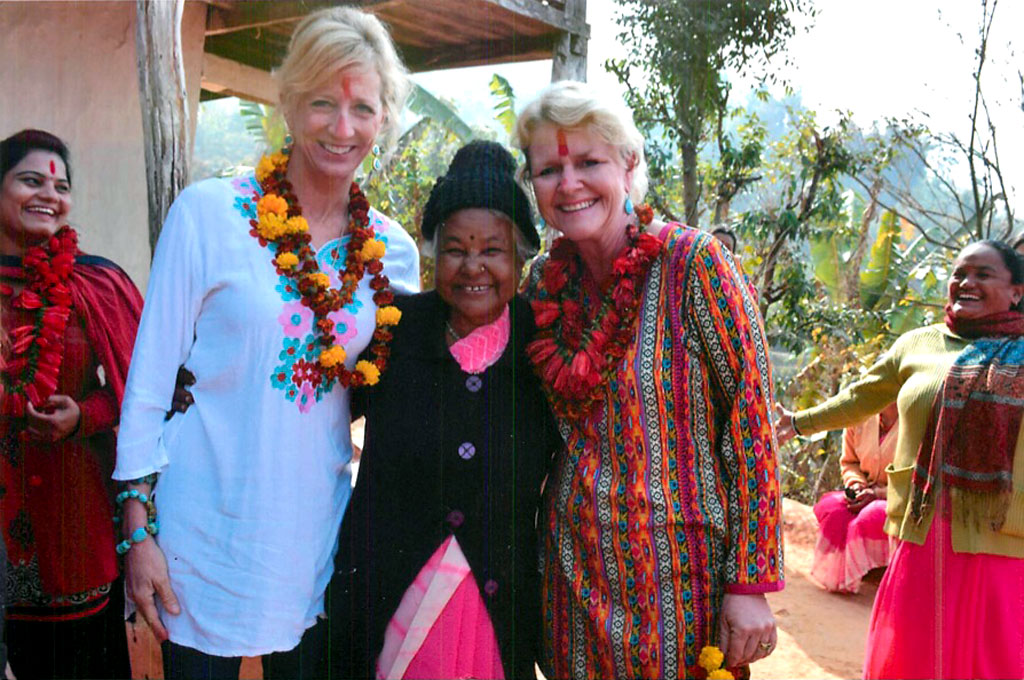
Oklahoma doctors often spend many hours a week providing free services on their personal time, serving on nonprofit boards and traveling to countries across the world to help medically underserved people.
Among those serving for more than 30 years, each in one capacity or another, are Dr. John Crouch of Tulsa and Dr. Susan Chambers of Oklahoma City – both long-time volunteers whose lives demonstrate nearly every way a medical professional can make a difference to those in need.
Crouch, president of Good Samaritan Health Services, remains an active participant in the charitable organization he began in 1998. However, he doesn’t take all the credit for an agency that provides 54 free medical clinics a month in and around Tulsa.
“This wasn’t a one-man job,” he says. “I did help to found it, but couldn’t have done it without everyone else.”
Crouch came to teach in Tulsa in 1978, when Oral Roberts University still had a medical school, which closed in 1989. By then, he was involved in the creation of In His Image Inc., a medical nonprofit with three main goals: conduct a Christian-oriented family medicine residency program; support worldwide missions work; and offer medical care to underprivileged populations.

Today, Good Samaritan is one of the three nonprofits that evolved from In His Name. Good Samaritan takes fully equipped, mobile medical clinics around Tulsa to serve people who might otherwise never see a doctor.
“We don’t believe that we are supposed to displace any other free clinic,” Crouch says. “We are trying to fill a niche in the system, looking at places where people are falling through the cracks and trying to fill that need with our mobility. We ask ourselves, ‘Just what can we do with our mobility and partnership with churches? What can we do to help the people who are falling through the cracks?’”
In Oklahoma City, Chambers, an obstetrician/gynecologist, spends time outside her private practice at medically related charitable events, volunteering at local clinics and working with national and international charitable organizations.
Among the work she has done for decades is board service and volunteer work locally for the March of Dimes, Walk America and Red Cross. On a broader scale, she works with the Institute for the Economic Empowerment of Women and World Neighbors. She has traveled to Haiti, Guatemala, Ecuador, Mali, Uganda, Tanzania, Kenya, Nepal, India and Indonesia, and took a Volunteers in Medical Missions trip to Tanzania with her daughter a few years ago.

“I was raised in a home where helping others was valued and encouraged,” Chambers says. “My parents set marvelous examples at church and in community organizations for me and my brother.”
Chambers says volunteer work is important for every person to perform, from the smallest hand-up and serving on a nonprofit board to working in community, national and international organizations.
“I am blessed to be able to give back in ways that I love,” she says. “Whether it is truly a medical mission where we treat patients, or through more comprehensive organizations that work to improve the lives of others through all aspects of their life – health, nutrition, businesses, savings and credit – it is my duty and privilege to participate in any way I can. Not everyone can travel to Indonesia. Not everyone has the clinical skills to work in a free clinic. But everyone can do something.”






















